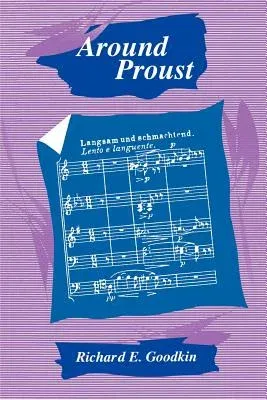A study in obsession, Marcel Proust's A la recherche du temps perdu is
seemingly a self-sufficient universe of remarkable internal consistency
and yet is full of complex, gargantuan digressions. Richard Goodkin
follows the dual spirit of the novel through highly suggestive readings
of the work in its interactions with music, psychoanalysis, philosophy,
and cinema, and such literary genres as epic, lyric poetry, and tragedy.
In exploring this fascinating intertextual network, Goodkin reveals some
of Proust's less obvious creative sources and considers his influence on
later art forms. The artistic and intellectual entities examined in
relation to Proust's novel are extremely diverse, coming from periods
ranging from antiquity (Homer, Zeno of Elea) to the 1950s (Hitchcock)
and belonging to the cultures of the Greek, French, German, and
English-speaking worlds. In spite of this variety of form and
perspective, all of these analyses share a common methodology, that of
"digressive" reading. They explore Proust's novel not only in light of
such famous passages as those of the madeleine and the good-night kiss,
but also on the basis of seemingly small details that ultimately take
us, like the novel itself, in unexpected directions.

